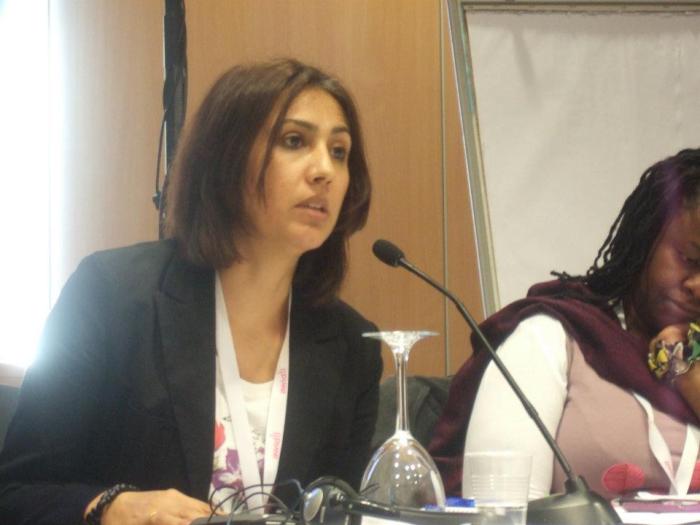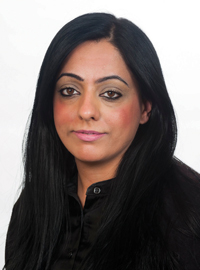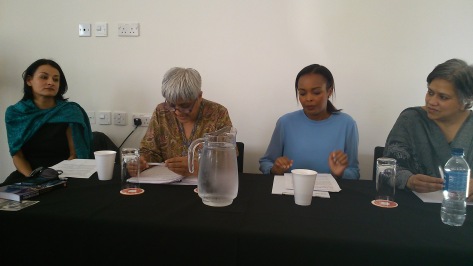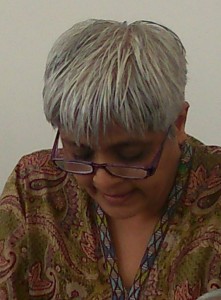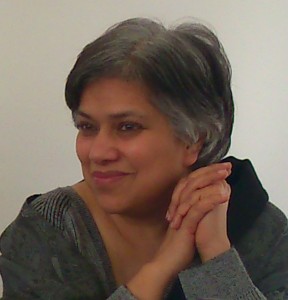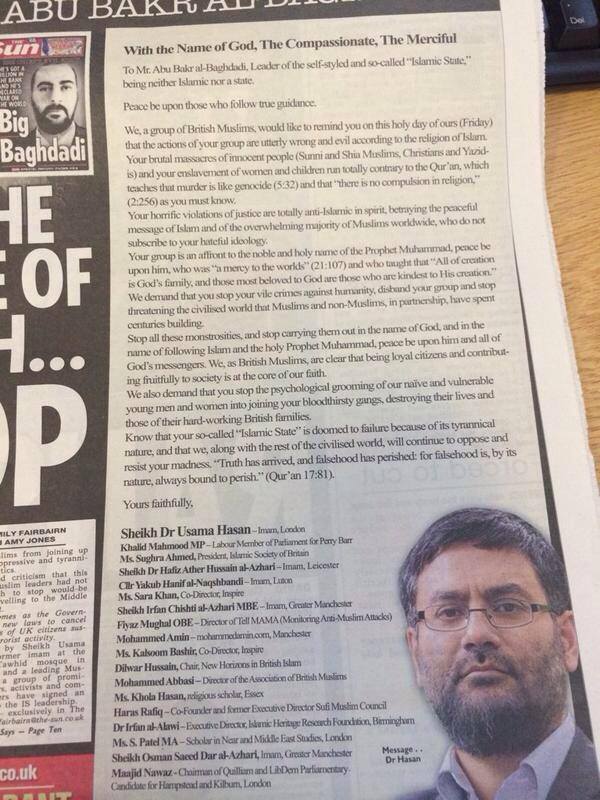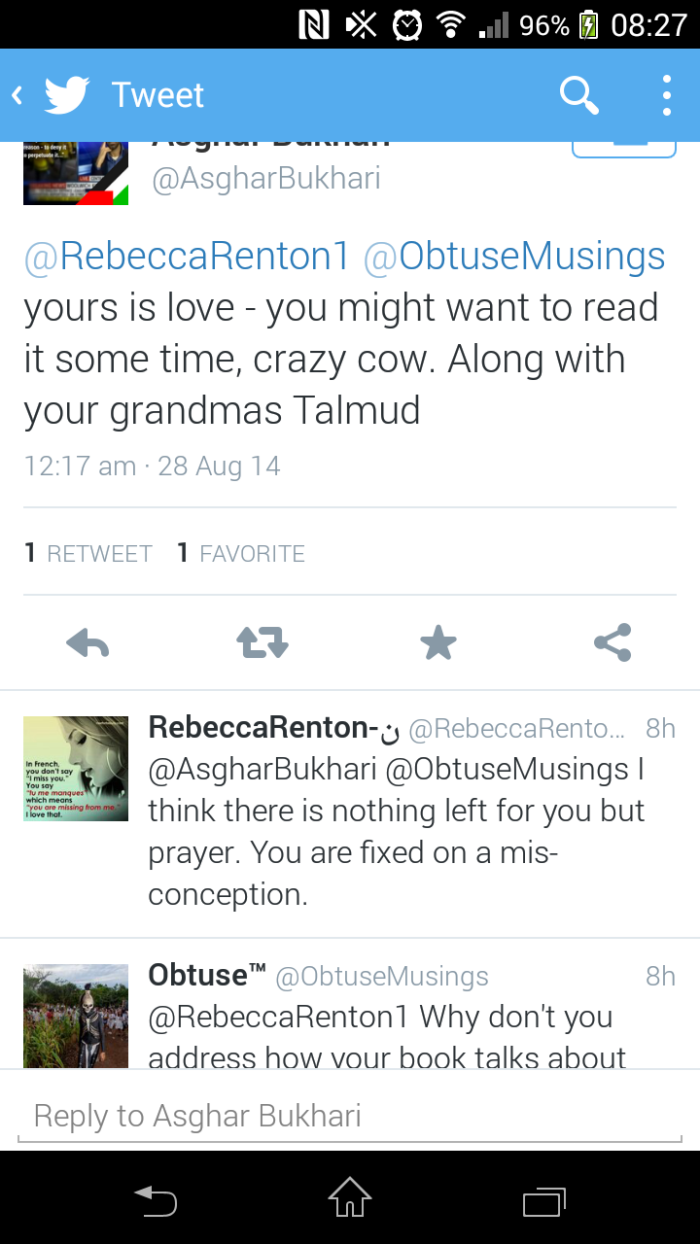
Archive for the ‘BME’ Category
Book review: Western Fringes

When I read the blurb of Western Fringes – a Muslim man trying to find a Sikh woman who has run away from home to escape an arranged marriage – I admit that I was sceptical at first. I thought, not another cliche that is often played out in Bollywood movies; they’ll probably end up marrying one another and showing love triumphs all.
Not quite.
A woman I follow on Twitter had recently received a copy of the book by the author, Amer Anwar, and when I expressed interest he also sent kindly sent me a copy, along with a masala chai teabag. I wanted to read it on holiday but unfortunately it arrived in the post just after I had left, so I had wait until I returned to read it.
Western Fringes is set in the bustling, diverse district of Southall – often described as ‘little India’ due to its large Sikh population. It tells the story of Zaqir (Zak) Khan, an ex-con who works in a dead-end job at a builder’s yard. One day his boss, the formidable Mr Brar, calls him into the office and orders him to find his runaway daughter Rita, or he’ll send him back to prison. Mr Brar’s meathead sons Rajinder and Parminder are ordered to keep an eye on him but they have their own agenda in Zaq’s search for Rita and don’t make it easy for him.
This is Amer Anwar’s debut novel, which won the Crime Writer Association’s Debut Dagger award. I was entertained and engaged throughout the novel and found it very hard to put down. Although most of the characters are South Asian, they were unique and far removed from the stereotypes. Frankly, it is not the genre of book that I usually go for so I was unsure how I would respond do it. Nonetheless, I gave it a chance and I am glad I did.
The story also goes into the historic tensions that have existed between Muslims and Sikhs and how they have an impact even here in the UK. Being of Pakistani heritage I am aware of these issues but non Asian readers might find this aspect of the novel interesting.
What I loved most about the book was the hilarious banter between Zak and his best friend and partner in crime Jags; it is probably the best thing about the book. In fact, I think a sitcom could be made, centered around these two protagonists. Something for TV producers to consider – if it happens, you heard it here first.
The book is littered with some Punjabi phrases which I understood perfectly well, though I am sure non Punjabi speakers will get the gist. Punjabi curse words are so rough that they have the potential to raise the dead so don’t worry if you don’t understand – that may not be such a bad thing!
One of my criticisms is that I would have liked to have known more about Zak’s family and how his prison sentence affected their relationship with him. Furthermore,the other characters are described in detail, while no description is given of Zak – perhaps that was deliberate?
Nonetheless, I was surprised that this was a debut novel as it is written very well and does not read amateurish in any way. I highly recommend it for anyone wanting to read a crime fiction novel with a bit of a twist.
The Morality of Faith Schools
On Wednesday July 19 I appeared on BBC Radio 4’s Moral Maze to discuss the Al-Hijrah school controversy.
A long-running legal battle between Ofsted and the Islamic state school in Birmingham has reached the Court of Appeal. The principle at stake is whether segregating boys and girls – for all classes,breaks and trips – amounts to unlawful sex discrimination in a mixed-sex setting. Ofsted’s lawyers argue that it is “a kind of apartheid”, leaving girls “unprepared for life in modern Britain”.
The school maintains that gender segregation is one of its defining characteristics and that the policy is clear – parents can make an informed choice. The case is based on the Equality Act, which means the implications of the ruling will be far-reaching and will apply to all schools, not just state schools.
The case attracted the attention of activists, including the Southhall Black Sisters and One Law for All. The various equality and feminist groups organised a protest outside the court at the start of the hearing, arguing that the case has become a “key battle between feminists and fundamentalists” and that “separate is not equal”.
Along with other activists I signed this letter in the Guardian to express concerns about the dilution of gender rights and equality regarding minority and in this case Muslim girls’ and women’s rights.
You can listen back to the show here.
Murdered by my father: A review

Murdered by my father. Source: BBC
Originally published for Sedaa on April 4, 2016
“Someone’s always watching. Trust me.”
These are the words uttered by college student Salma in the BBC 3 drama Murdered By My Father, as she warns her boyfriend to stay away before someone finds out that they are dating.
We have all been there, have we not ladies? Most of us, from South Asian or Middle Eastern backgrounds, where the notions of honour and shame are so important, have always been — and always will be — on our guards whenever we leave the house. Because no matter what you are doing, someone, somewhere, is always bound to catch you out and report you to your parents. Even when you least expect it. Even when what you are doing is entirely innocent it does not matter. Once word gets out it can blemish a reputation you must keep clean. Women will sometimes pay for this transgression with their lives.
Written by Vinay Patel, Murdered By My Father is a harrowing drama based on testimonials from survivors of ‘honour’ abuse. It tells the story of Salma (played fantastically by Kiran Sonia Sarwar), a young woman who lives on an estate with her widower father Shahzad (Adeel Akhtar) and younger brother Hassan (Reiss Jeram).
Like many girls of her age, Salma has a boyfriend, Imi (Mawaan Rizwan), except she has to keep it all a secret from her family and the wider community or else there will be hell to pay. Unfortunately for Salma, she is already promised to someone in marriage — the bland and unremarkable Haroon (Salman Akhtar). It is a painful reminder that her life is not hers, but simply on lease until the time comes for her family members, her community, to reclaim what was never hers. We belong to our fathers, brothers, husbands and the wider community. We are not individuals.
There is a scene in which Shahzad sees his daughter’s pink bra in the bathroom, a symbol that she is no longer a girl, but a woman, a sexual being who is a potential threat to his honour — that bullshit word that is a noose around most women’s necks.
“You carry all of us,” Shahzad explains to his daughter. “I get scared because when they look at you, they see me. You fail, I fail. When you’re safe, I’m safe. When you get married then I can die happy.” This type of emotional blackmail is often deployed as a tactic to ensure females toe the line. Shahzad is not portrayed as a monster, but a man who is trying to do right by both his family and the community. But the latter always wins in the end. It is important that we see this side of Shahzad first to show that these people can switch from loving parents to monsters who will take their children’s lives.
We see Salma and Imi meeting up secretly throughout the drama, savouring their moments of happiness because you know — as we all know painfully too well — that they can be snatched away from you in next to no time. On the day of her engagement, Salma is seen by her fiancé, kissing her boyfriend goodbye. The family and guests are allowed to enjoy their food, unaware of the storm that is about to be unleashed upon them.

And, inevitably, Salma is shamed and dishonoured. The ‘shame’ is also on Shahzad. He has no honour left because he failed to keep his “slag” of a daughter in check. “Take care of your filth!” Haroon spits at the man who will no longer be his father-in-law.
Salma’s younger brother is caught in the middle, wanting to do right by both his father and his big sister, the same sister who doubled as a mother-figure. Younger siblings are routinely put in the cruel position of spying on their siblings, to make sure they’re not up to no good.
Shahzad locks his daughter in a room and we see him fingering a blade, an ominous sign of what will happen. Salma manages to escape to her boyfriend’s house and they make plans to run away together, but she bravely decides to go back home the day after, to make mends, to apologise to her dad. She has nothing to actually apologise for — her only ‘crime’ was to have fallen in love, for wanting to live a life on her own terms and not dictated to by centuries-old honour codes.
Don’t go back, you plead to her. But you remember the title of the drama and you almost wish it weren’t a prediction. Poor Hassan is sent to the shop by his father to buy some sweets, not realising it’s the last time he will see his loving big sister alive.
She naively assumes it will all be okay if she apologises. After all, isn’t that what parents are supposed to do — forgive their children when they make a mistake? But not this time. There will be no forgiveness.
“I did everything for you,” Shahzad shouts at her. “I never asked for anything in return — only that you listen to me in one thing.”
She replies: “You asked me for loads. You just don’t know that you’re doing it.”
In the end it’s not the blade, but her father’s own hands that take away her life. The hands that had once fed her, clothed her, and even embraced her, are the very hands that take away the life he helped create. Shahzad then tries to take his own life, perhaps repulsed by his actions or, more likely, unable to face the community again after ‘losing face’ over this ‘shame’.
What I loved about Salma’s character is that she continued to fight until the very end. She could easily have been portrayed as meek and submissive, and given in to her father’s demands by marrying someone whom she did not love — just for the sake of her ‘honour’. Others will not have had that choice.
I am not ashamed to admit that it made me cry for hours afterwards. I wept for the many, many girls and women whose lives are taken for the sake of ‘honour’. I wept for the girls who were forced to choose between their family or controlling their own destiny. I wept for those girls who could no longer fight back and submitted to the family pressure.
And I wept because I knew that Salma could easily have been me.
Murdered by My Father is available to watch on BBC iPlayer.
Allegations of CSE cover up and misogyny within the Labour Party
Shaista Gohir is pulling no punches. The chair of the charity Muslim Women’s Network (MWN) UK is continuing to deal blows to the Labour party, accusing it of covering up misogyny and intimidation of Muslim women from the men in their own communnities.
Gohir has been gathering evidence from Muslim women across the country in order to get the party to address the allegations and make some serious changes.
But more revealing is the allegation made by a former Labour councillor, who claims that abuse is being covered up within the Labour party. The Muslim woman told Newsnight that Pakistani councillors on the council where she served are regularly protecting men who may be exploiting white girls, simply because they are important business allies.
Zahara – not her real name – claims that the police presented councillors with a sexually explicit video as they ruled on whether to shut down a club where these alleged offences were taking place.
She said: “The decision ultimately should have been to close the establishment down because of inappropriate behaviours going on of a sexual nature between young white girls and Asian males that was being shown on the video.
“I was clearly told to stop questioning by a hand gesture and nudge by senior male councillors that were Asian who were sitting next to me… I was told: ‘Do you know who it is? It’s a very prominent Asian businessman that supports us’.”
This woman claims that, on this occasion and many others, she was deselected because she refused to do as these powerful councillors of Pakistani heritage demanded. When she arrived at the selection meeting, it was full of Asian people she had never seen before. “They’re in the pocket of influential male councillors,” she added.
This, in my opinion, is the angle on which Newsnight should have led. Instead, it was almost buried within the report. It is almost as though allegations of covering up CSE were an afterthought of this report.
It seems evident to me that Labour is doing anything to keep the ‘minority’ vote, at the expense of leaving those groups effectively to be ruled by ‘their’ men.
“Systematic Misogyny”
From about 2:50 in the Newsnight video, Oldham councillor Arooj Shah is seen leafleting in her neighbourhood, along with fellow councillor Shadab Qumer. Councillor Shah is doing the talking yet the Muslim man they visit only shakes hands, and speaks directly, only with the male councillor, instead of Councillor Shah.
She told the BBC: “There’s Labour Party members who will accept my two colleagues, Asian men, but support anyone but me. They’re members of the local Labour party. They are shameless about it… It’s because I’m a woman and anyone who sugar-coats it is lying.”
Councillor Shah also said that she has received disgusting letters where her head has been attached to images of Page 3 models, in an effort to silence and intimidate her.
MWN has been heard from many Muslim women across the country on the “blocking” of vocal, independent Muslim women by male members of the Labour Party who are of Pakistani heritage – or ‘biraderi’ (clan) politics. The charity has called for an inquiry by party leader Jeremy Corbyn into the “systematic misogyny” within Labour. If this is happening in the Labour party then I wonder – is this also happening in other parties?
Unfortunately this is no surprise to many women of Muslim heritage. We are all aware of the fact that most of the hostility faced is by those from within our own communities. We receive support when we toe a certain line, but as soon as we go beyond that we are quickly silenced.
Well done to the brave women who are continuing to speak out against the misogyny and campaigns of harassment they have faced. It takes a lot of courage to speak out.
On the campaign trail with George Galloway
Originally published for Left Foot Forward on April 21

Few people, when casting their vote on polling day, will have Judgment Day in mind. But Oldham’s Muslim population are being told by George Galloway to consider the ‘final day’ when they choose their candidate for local elections.
The Respect party leader, who is standing for re-election in Bradford West, visited the town on Sunday to officially launch the campaign for Respect Oldham council election candidate Tariq Mahmood Ullah.
According to Galloway, not only do the borough’s Muslims have to consider choosing the right candidate for their ward, but they have the added burden of voting on behalf of the Palestinians.
“The people of Gaza don’t have a vote,” Galloway declared. “If they did, they would vote for Tariq. A vote for Respect, therefore, is a vote for Palestinians.”
The green and red Respect Party bus visited Waterloo Street with Galloway on board, alongside Ullah – a married father-of-three – who is fighting for election in the St Mary’s ward, a predominantly Pakistani area. Labour’s Shadab Qumer will be fighting for re-election.
The atmosphere may have been electrifying for the majority male members of the community, who greeted Galloway as though he were the Messiah, but it was intimidating for someone like me, one of a handful of women at the campaign launch. During the rally most women chose to stay on the other side of the road, away from the men.
Starting with the Islamic blessing bismillah–ir–rahman–ir–rahim (In the name of Allah, the most gracious, the most merciful), Galloway described Ullah as a “lion” who has got the “sheep” (that’s politicians to you and me) ‘nervous already’.
It is commendable for politicians to try to get more people involved in the democratic process, and this is what Galloway seems to be doing. He is defending a 10,140 majority in Bradford West, where he won support from a cross-section of the city.
When Galloway claims to be speaking ;for those Labour has abandoned’ there may also be some truth to it. Although Oldham is a Labour-run council, two UKIP councillors were elected to the Council for the first time last year, with the party coming second in many of the 20 wards.
After winning Bradford West in 2012, Galloway claimed to have “smashed” the clan-based/biraderi bloc voting. “We don’t believe in biraderis,” he said in Oldham. “There’s nothing Islamic about biraderis, there’s nothing democratic about biraderis.”
Traditionally, when a candidate was chosen for the election, it would have been an elder selected by his clan on the basis of bloodlines rather than merit. For the second and third generation Pakistanis in the UK, the biraderi system is not as relevant as it was for the first generation of Pakistani settlers, who found that it provided essential support in the form of links back to the villages of Punjab and Pakistani-administered Kashmir.
But despite Galloway’s bluster, this continues today. And the journalist Nick Cohen was correct when he described Galloway’s politics as ‘unashamedly communalist’. Those who once identified with their ethnicity or their parent’s country of origin – i.e. British Pakistanis – now identify more with their faith, i.e. Islam. In this respect Galloway has found his ‘new revolutionary proletariat’, as Cohen puts it.
Galloway’s speech in Oldham was littered with Islamic terminology and religious rhetoric. He claimed that Muslims would have to account for their actions and the way they vote. This is nothing new – these were words recycled from a speech he gave back in 2012 in his by-election campaign.
Galloway also made references to grooming cases that have recently been in the news – two of the men who were jailed in 2012 for preying on vulnerable girls were from Oldham – claiming that it is unfair to label them “Muslim criminals”.
“These men are not vile perverts because they are Muslim, they are just vile perverts,” Galloway said, before going on to say that “the biggest terrorists in the world are white Christians in the White House. They killed one million Iraqis and they’re still doing it.”
Ratna Lachman, a human rights campaigner who chaired the hustings in Bradford earlier this month, remarked that personality rather than issue-based politics dominate in Bradford West.
That seemed to be the case in Oldham on Sunday. The Oldham candidate preferred to let Galloway do the talking for him, though when he did speak he merely said he wanted to “ease concerns some may have for Islam”. Very little was said about local issues and how Respect would address the needs of Oldham’s residents.
Opinion seems divided over Galloway. Some Bradford residents claim he has done little for the city. Records show he has spoken in four debates in the last year and has voted in 11.19 per cent of votes in this Parliament – well below average amongst MPs.
Meanwhile West Yorkshire Police are investigating after allegations were made on an anonymous website against Labour’s candidate Naz Shah. At the hustings earlier this month Galloway went on the offensive against Shah, accusing her of lying about her forced marriage. Muslim Women’s Network UK described Galloway’s comments as “irresponsible” and “counter-productive”.
Dan Holden wrote on Left Foot Forward in 2012 that Respect was running a ‘divisive and regressive’ campaign. Three years later and little has changed.
International Women’s Day – Dissenting Voices
“It’s women who have to take up these issues. The left is not going to do it. The left are trying to silence us.”
You would be forgiven for thinking this statement was made quite recently. In fact, it is made by one of the women who appeared in ‘Struggle or Submission’, which documented the beginnings of Women Against Fundamentalism (WAF).
WAF was set up partly in response to the controversy surrounding Salman Rushdie’s The Satanic Verses, but also with the aim of challenging fundamentalism in all religions.
Human rights activist and co-founder of Southall Black Sisters Gita Sahgal made the documentary, which filmed women working and living at a women’s refuge in Brent, who wanted the choice to practice, or not practice, the faith which they were born into. Many of the Muslim women wanted to follow their own interpretations of Islam without any interference from male clerics – a debate that still continues to this very day. Some of those women could not understand how young women were taking up the veil after decades of fighting for the right to remove it.
The documentary was shown as part of an International Women’s Day talk at Central Library in Manchester, titled ‘Women Against Fundamentalism – Stories of Dissent and Solidarity’. It showed a group of women from all backgrounds marching in support of Rushdie as part of their own right to religious control, at a time when race made way for religion in identity politics. They were attacked by both the religious fundamentalists and the fascists simultaneously.
The three speakers were co-founders of SBS, Pragna Patel and Gita Sahgal, and Amal Farah, an ex-Muslim from Somalia. Sandhya Sharma, a Manchester-based activist, chaired the discussion.
How fitting that these women were talking about their challenges against both religious fundamentalists and racists alike while an EDL march was taking place in the city centre.
Pragna said that WAF predicted the rise of religious fundamentalism.
“We don’t take pleasure in the fact that we were right in our predictions,” she explained. “Everything we will say has already been said 25 years ago.”
This was echoed by Gita Sahgal, who added: “The things we talked about have remained valid.”
SBS was described as the “rebellious child of Thatcherism”, which “challenged the myth of the community”. Even today, we find that look at communities through the prism of faith, which means that we either ignore voices of dissent or deliberately shut them down. Dissenters were told repeatedly (and shamefully) by the left that “now is not the time to raise these issues”.
“The only tools we have are our voices of dissent,” Pragna said. “Suppression of dissent for women is literally a matter of life and death.
Amal’s family fled war-torn Somalian to Canada before settling in Britain. Her mother then started practicing a more austere version of Islam, swapping her Somali dirac – a kaftan-like garment – to the Islamic jilbab which covers women from head to toe.
To be Somali is to be Muslim, Amal explained. She describes having her first period as an end to what few freedoms she had had as a child and told of her secret passion for football, a sport which she was never allowed to play because a male could, by chance, walk past and see the females behaving ‘immodestly’.
“I was never a religious person, I just happened to be born into [Islam]”, she said. She came “out” as an ex-Muslim in 2004, much to her mother’s horror who then moved her siblings to Dubai and then back to Somalia.
Amal’s story is not that uncommon. More and more ex-Muslims are “coming out” and sharing their stories, though often they must do so secretly, for fear of reprisal. In fact, Amal was so scared of what could happen that she was not listed as a speaker at the event. Understandable perhaps in a Muslim-majority country, but in Britain in 2015? A travesty.
It is not the other, as Gita explained, but killing the other within. Minorities within minorities, who dare to speak out and challenge the status quo. Shamefully, such voices have been stifled by even our governments who willingly worked with “non-violent extremists” who were known to have “run death squads” abroad.
“Non-violent extremists – what a dangerous and ridiculous oxymoron”, Gita said. “The government knew what they were doing.”
She also expressed frustration at the fact that young people were joining ISIS and getting into trouble with the authorities while extremist leaders, such as Anjem Choudary, are able to roam free.
I asked the panel if they believe the media and the government have finally woken up to these problems. After all, the pseudo-human rights group CAGE has lost its funding from the Roddick Foundation and the Joseph Rowntree Charitable Trust, after its research director Asim Qureshi claimed that the security services helped “radicalise” Mohammed Emwzi aka ‘Jihadi John’. Will we be having the same discussion in another 25 years’ time?
Gita replied: “Things have shifted. People say the tide is turning. At most we’re like pebbles on the beach being swept away. It’s a long struggle.”
It is hard for one not to feel disheartened when realising that what the likes of Sahgal and Patel are saying now has been said before and will continue to be said and no matter how hard activists drum home this message, some continue not to pay attention.
A good demonstration of this was when an Indian lady said she could not support SBS’ stance on the Charlie Hebdo killings, describing the magazine as ‘racist’. Pragna challenged this myth superbly and explained that “the victims of fundamentalists are also alienated and disenfranchised.
If the likes of Gita, Pragna and Amal are just pebbles on the beach, they are an important collection of pebbles. We may very well be having this discussion for decades to come, but the difference now is that more and more voices have been added to this debate, creating a mass movement to challenge fundamentalism. We will not remain the “other within” for much longer.
Happy International Women’s Day to the brave women who continue to speak out and do important work within their communities.
Why are we blaming girls for the actions of predatory men?
Originally published for Left Foot Forward on November 2, 2014
Child sexual abuse is now ‘normal in parts of Greater Manchester’, according to Stockport MP Ann Coffey. Her independent inquiry into child sexual exploitation, released on Thursday, found that it is a ‘real and ongoing problem’ and a change in attitude is needed.
When it was found that police had failed to protect up to 1,400 sexually abused young girls (perhaps even more) in Rotherham, we have all been asking ourselves: why are children being groomed and abused? Why is this being allowed in our country?
But I’ll tell you why. It’s because we don’t care. Sexually abused girls are not seen as actual victims; they are treated as ‘little tarts’ or liars.
When the nine men from Rochdale and Oldham were successfully jailed for sexually grooming young girls, the instant reaction from Muslim and south Asian people was that those men do not represent all the men from that community. Not all Pakistani men are abusers.
Well I’m sorry to break it to you, but those men who viewed the young girls as ‘slags’ and as ‘easy targets’ etc, do share similar values to the other members of their communities. No, not all Muslim or Pakistani men are abusers – there are sick men in every community. But many others do share that mind set.
Don’t believe me? See the comments below (click to zoom in).
The screenshots are taken from post on the BBC Asian Network’s page on Thursday, when presenter Nihal Arthanayake hosted a discussion show asking ‘Should parents let teenagers dress the way they want?’ Perhaps young girls should start wearing a burqa, as one Saudi cleric suggested – better to be safe than sorry, eh?
Beautician Preeti Vyas said (at 18:30) that there are sick men out there and women (let’s not forget the topic was about teenage girls, not women) should protect themselves as best as they can. But what if a woman is dressed ‘decently’ (whatever that means) – who is to blame for her rape?
Preeti could easily speak out against society; she appears to blame a female for her own abuse. The gang members from Rochdale and some in their communities are singing from the same hymn sheet. These people calling into the show may find rape abhorrent, but they justify it by blaming the victim.
And there is the problem, especially within the south Asian and Muslim communities in particular – it might make me unpopular, but it needs to be said. In fact, I was labelled an ‘Islamophobe’ and ‘sick feminist’ (which I took as a compliment) by one man who believes 15-year-olds should be classed as adults.
I was sitting with a group of Pakistani women who were talking about the Rochdale grooming gangs in 2012. One woman remarked, ‘Why were these girls even out in the first place? Silly tarts.’ Another added, ‘They’re always trying to entrap Asian lads.’ It was these underage girls, these children, who were the predators, not the other way around.
And if you’re a brown girl being abused, people care even less. Not only do you have a lack of confidence in the police because you are raised to believe they are institutionally racist, but your family members try to hush up the crimes once discovered.
This is certainly the view of Shaista Gohir, who believes the communities are allowing the abuse of girls to continue.
The chair of the Muslim Women’s Network, she is making an appeal to victims of sexual abuse by family members to come forward for a new report she is compiling to highlight the extent of the problem.
She said:
“I want to collect case studies within the Muslim community to make them realise that part of the problem is our silence and we’re covering it up. The problem is getting worse and worse. I am hoping the research will get them to be proactive rather than ignoring it.
“I’m finding that women are the barrier to justice – they’re covering it up. Women have been in the know. Isn’t it our fault as a community if we instantly protect the offender and demonise that victim? This happens in all communities but within the Asian culture there’s the shame and honour which results in covering it up.”
I am glad that Ann Coffey highlighted the need to change our attitudes, but I worry that some of her statements could be seen as perpetuating this victim-blaming mentality. She said:
“Sexting, selfies, Instagram and the like have given rise to new social norms in changed expectations of sexual entitlement, and with it a confused understanding of what constitutes consent. I think we have lost the sense of what a child is. Sexual predators out there are having their quite unacceptable views confirmed through messages in the wider media: that children are just sexualised young adults.”
If an older man is sexually attracted to a young girl, that shows there is something wrong with him, not the young child. How is that we are still blaming a child for the actions of predatory men?
A young girl, a child, should not be viewed at in a sexual manner just because she is wearing a crop top, or shoes with a heel higher than an inch, or for wearing lipgloss. I am fairly certain that paedophilia and rape existed long before the invention of the selfie and ‘provocative’ pop videos.
When young boys are raped or molested, no one asks them what they did to deserve it – that question is reserved for those who had the misfortune to be born with a vagina.
And I am sick of the words ‘honour’ and ‘shame’ constantly being used to silence girls for being victims of horrific crimes. The shame lies with the perpetrator, not the victim. Until we stop blaming a girl’s behaviour or clothing for her rape and abuse, we will never end the sexual exploitation of women and girls.
A weekly round up: Fatwas, nude photos and sensationalist reporting
Sensationalism in the British press
I was about to go to sleep when my Twitter timeline erupted with the news about the brutal murder of 82-year-old Palmira Silva in her home in Edmonton, north London. Nicholas Salvadore, whose identity was revealed later, has since been arrested on suspicion of murder.
Police were initially called out yesterday to investigate a man dressed in black, who neighbours said had decapitated a cat with a foot-long, machete-like blade, and who was running through rear gardens banging on doors and windows.
The Sun newspaper decided to go with a front page claiming “‘Muslim Convert’ beheads woman in garden”. Someone apparently told The Sun journalist that the alleged murderer had converted to Islam, though this cannot be verified.
This is sensationalist and shoddy reporting for several reasons. Firstly, detectives say they have ruled out terrorism as a motive. By putting ‘Muslim Convert in the headline and on the front page, alongside the letter to ISIS caliphate Baghdadi (see below) in the paper, The Sun is forcing its readers to link the stories together. Yes, beheadings have been in the news thanks to the barbaric actions of the so-called Islamic state, but if the police are not describing this as a terrorist crime then why is The Sun making readers think otherwise?
Secondly, as an arrest has been made, publishers and broadcasters have a duty to report news in a responsible way and in a manner in which will not create a real risk that the course of justice in proceedings may be seriously prejudiced. I work at a local newspaper so I know that I could not get away with writing that and nor would my editor publish it. However, The Sun can afford to be in contempt of court as it is a national paper, therefore they can choose to flout certain rules and guidelines.
Thirdly, the Press Complaints Commission code states that the “details of an individual’s race, colour, religion, sexual orientation, physical or mental illness or disability must be avoided unless genuinely relevant to the story.” As we do not know what the motive of the suspect murderer was, it is irresponsible of The Sun to mention the man’s religion.
What we seem to have forgotten in all this is that an innocent elderly woman was murdered in such a horrific way. What must her family be going through? The Sun has demonstrated that it does not care about victims, rather it uses such victims to make a wider, political point to push its agenda.
I said as much on BBC Asian Network earlier today, which should be available to listen to on iPlayer soon.
Speaking out on abuse

Nazir Afzal
What has happened in Rotherham for over a decade has shocked us all. The Times claimed (£) that details from 200 restricted-access documents showed how police and child protection agencies in the South Yorkshire town had extensive knowledge of the grooming of young girls for a decade, yet a string of offences went unprosecuted. I hope journalist Andrew Norfolk wins some awards for his brilliant investigative work.
People have come out and said that “victims should speak out” and those who know must tell the police. Ann Cryer, former MP for Keighley, tried to do just that. She claims that West Yorkshire police did not want to do anything when she told them about the abuse of young girls in her town. She then went to “community leaders” who told her that it was nothing to do with them. We also read, in Rotherham, that victims‘ evidence would go “missing” and police would not take their claims seriously. So it’s no good telling people to speak out, because at the end of the day, many in positions of power neither listened nor took any action.
Louise Mensch suggested that with a Muslim – Nazir Afzal – as the chief prosecutor of the Crown Prosecution Service for the North West in England, children would remain unsafe, which is an inflammatory statement that prompted some to reply with anti-Muslim sentiments. Never mind the fact that he was responsible for securing successful prosecutions for Asian men who were part of a grooming gang in Rochdale. Some have suggested that he is in denial over the religions of the men involved, who were all of Muslim heritage. Perhaps Afzal – a devout Muslim – is correct that religion was not a factor, as drinking and prostituting girls is hardly one of the five pillars of Islam. It could be because, as a chief prosecutor for the CPS, he has to be more careful with what he says. Regardless, one can hardly accuse him of remaining silent on abuse.
In an article for the New York Times a year ago, Afzal knows just how hard it is for women to speak out against barbaric cultural practises, stating: “Women have been talking about these issues for a long time,” he said. “I’m not the first person to take up this fight in this country, I’m just the first man, and that makes it a lot easier. I come from these communities. I understand their patriarchal nature. I can challenge them. And because I am a man, the men in the community are more likely to listen to me.”
While Muslim reformers do attract a lot of negative attention from those within their own communities, it is worse for women, who often have to put up with misogynist remarks as well as accusations of blasphemy or heresy.
Afzal revealed a more personal side to himself. When bullied in school, his father told him to “get used to it”. He also stopped posting on Twitter because, he said, the abuse got to be too much. This does not surprise me. Many Muslims, including myself, have been heavily criticised and insulted when choosing to speak out. All I can say is that when you manage to piss off both the far right and the Islamists, you are doing something right. I hope that Afzal returns to Twitter although I understand he probably has better things to do than respond to those on there who simply want to hurl abuse at him.
I have heard some Muslims say that the whole of Catholicism is not to blame for child abuse by priests, so why do we expect Muslim to defend their faith whenever any perpetrators of a Muslim heritage commit crimes? Perhaps we do not blame the whole faith but we do examine whether the requirement of celibacy is a factor in the abuse of young boys by Catholic priests. Earlier this year, Pope Francis met victims of abuse and asked for forgiveness for the crimes, which shows that in order to solve a problem, one must first acknowledge it.
What the Fatwa
Just over a week ago, a group of British imams and scholars issued a fatwa condemning Islamic extremist group ISIS. The fatwa represents the British Muslim community’s strongest denunciation of ISIS yet, calling the extremist group “heretical” and “an oppressive and tyrannical group.” It came after Britain’s terrorism threat was raised last week from “substantial” to “severe”. Clearly the government wants to be seen to be doing something though personally I think we should not give in to these terrorists by showing that we are afraid of them.

Fatwa
I can see both the upsides and downside of this fatwa. On the one hand, I am not keen on the use of the word ‘heresy’ as extremists themselves use it as a justification to kill those they deem as behaving in an “unIslamic” way. What exactly is ‘Islamic’ behaviour anyway? Furthermore, only those who follow those particular leaders are bound by the fatwa, meaning it is not applicable to everyone and can be ignored by many.
On the other hand, we have had many people in the media complaining about the lack of Muslim leaders coming out to denounce ISIS and the behaviour of its jihadis. Fatwas serve those people who still seek the advice and ruling of their sheikhs and imams. Chairman of Quilliam Foundation Maajid Nawaz wrote in the Independent:
Understandably frustrated cynics could claim that this is far too little, too late. Such a stance fails to appreciate that this can only be the start, not the end. The Isis brand will only be weakened by a full-on assault from all angles.
If theological “get out clauses” are not provided for vulnerable young minds, if all vulnerable young minds hear is silence from every other Muslim Imam on the subject, this will look precariously like consent.
Similarly the above letter, featured in Friday’s Sun newspaper, speaks to self-styled ‘caliphate’ Abu Bakr al-Baghdadi in his language and on his terms. Al-Baghdadi does not believe in secularism or western democracies, so what better response than from a group of practising and devout Muslims. My only criticism of the letter is that there are more than twice the number of men than women though that may have been down to not being able to get enough responses from people in such a short time.
Also in the news was the Muslim Council of Britain, who raised concerns about the prime minister’s anti-terrorism strategy. They claimed that the “crackdown” on British-born extremists will “push marginalised young people further towards radicalisation”. While I think the government’s strategy is only focused on those who have already become extreme – with not enough focus on counter extremism narratives – the MCB have to acknowledge that they cannot keep using this as an excuse. Some Muslims are being brainwashed and we need to address that, rather than using apologetic language. Some Muslims are already marginalised and no longer identify with Britain or British identify, hence why some chose to leave to fight in Syria and Iraq. At the end of the article is a quote from Saleem Kidwai, the secretary general of the Muslim Council of Wales, who said:
I would say to the government, you must talk to the Muslim Council of Britain because it is the largest organisation. You can talk to thinktanks but they are not the grassroots groups – the MCB has got the mandate from 500 organisations who represent Muslims from all walks of life. I know they would love to help rather than obstruct.
Gosh. I wonder to which thinktanks he is alluding…
The two faces of Asghar Bukhari
Sometimes people forget that what they post online is available for all to see. Recently, author Jeremy Duns decided to debate, or rather attempt to, with Asghar Bukhari, of the Muslim Public Affairs Committee, which describes itself as the UK’s “leading movement for empowering Muslims to focus on non-violent Jihad through political activism”.
Bukhari is regularly invited on to Sky News or the BBC. On air he is very calm and composed. But his Twitter account shows a darker side.
As you can see irony is lost on Bukhari who calls other people “bullies” yet constantly insults and demeans those with whom he debates. Not only does he use rather colourful language, he is misogynist towards women with whom he disagrees and even believes it is a “fact” that European Jews have no DNA linking them to Palestine. Perhaps media organisations should have a look at his Twitter account and his blog – where he likens Lee Rigby’s murderer Jeremiah Adebolajo to a “revolutionary” – before inviting him on air?
Don’t drink?
Retired judge Mary Jane Mowat was criticised by women’s campaigners after she said that the rape conviction rate would not improve until women stopped drinking so heavily.
Mowat, who stood down in August, said it was often difficult to secure a rape conviction as it was “one person’s word against another”.
She was not, she insisted, saying that drunk girls deserve to be raped, but that drunkenness has implications for juries attempting to establish the reliability of witness testimony.
What do you think – was she right?
Women’s bodies
Earlier this week, several intimate photographs of celebrities were published online. Apple confirmed that some iCloud accounts were hacked into. Copies of the images spread to other services, including Reddit, Imgur and Twitter, from which they were subsequently deleted by administrators.
The Ahmadi Muslims – a question
In a Twitter debate, I asked a few people why it is that Ahmadis, despite being widely persecuted, seem to be the most progressive of most Muslims in the world. After all, they believe in the same Qur’an as all other Muslims, so what makes them so different? My theory is, as they believe that the Messiah has already been – in the form of founder of the faith Mirza Ghulam Ahmad – this has marked the beginning of a new chapter and allowed them to progress and move forward. Other Muslim groups, however, are either doing nothing in the hopes of the arrival of a hoping for a messiah to solve their problems, or they are willing to do anything they can to can to prompt the arrival of the messiah. Certainly the latter is the view of the Evangelical Christians who believe that the return of the Jews to Israel is a prerequisite for the Second Coming of Jesus.
As I said, this is just a theory, but I would be interested in your views.
The forced marriage ban: will it work?
Originally published for Left Foot Forward on 30/06/2014

“When we’re born, we have that seed embedded in girls on how to behave and what to do. When you grow up we put food in front of the men – they eat first, we pick up the dishes and we eat last.”
Mother-of-four Habiba Jaan is not shy about expressing her thoughts on the issues facing south Asian women in Britain and a culture that keeps them under control.
The mental health worker, from the West Midlands, has spent many decades and her own financial resources in helping vulnerable women who have had to leave home because they were being forced into marriage.
And she has even more of a reason to help such women because as of June 16, parents who force their children to marry can be punished by up to seven years in prison. Previously, courts have only been able to issue civil orders to prevent victims being forced into marriage.
Jasvinder Sanghera of the Karma Nirvana charity appeared on Woman’s Hour to defend this legislation, which she believes is a step in the right direction and many victims who she has spoken to wanted forced marriage to be punishable under the law.
According to Amrit Wilson, however, BME women regard this as “an example of the government’s hypocrisy, and its cynical use of gender to intensify repression, criminalisation and Islamophobia”.
Let us believe for one moment that it is only Muslim families who have forced their children to marry against their will (Jasvinder is Sikh), surely it would be more ‘Islamophobic’ to allow victims to continue to suffer for fear of being labelled Islamophobic.
It seems at times that there is one law for the majority of the population and another for those with brown skins. This would not even be an issue if the girls involved had been white.
Habiba believes it is too early to know what effect the legislation will have:
“It has sent a strong message to parents, that you can’t take your girls to Pakistan,” she said. “It probably has worked in other places and it probably will work here in time. Some will prosecute, some won’t but I just want them to be safe and we have to respect that.”
She believes more needs to be done to support those women who have left home and for this she has set up a refuge in Wolverhampton – ‘Aurat supporting women’. She has been working on this for the past two years but has only managed to find like-minded women in the last year.
Their aim is to help south Asian women who have been victims of anything to do with so-called honour violence, trafficking or grooming.
“I thought: someone needs to make a move,” she said. “We have had no funding from anyone, we’re just a group of women. We’re trying to make a change within our culture – that’s what my aim is.
“It’s early days. We found that there was nothing in the West Midlands that’s actually catering for South Asian women. There’s no helpline, no support network for them. There’s nothing here.
“It’s a shame, there’s so much abuse going on out there and they don’t know where to go.
“We got to the stage where we said it’s about time we create something here. We don’t care about religion because the culture is the same.”
And who better to advise such vulnerable women than someone who was a child bride herself. Aged 15, Habiba’s father decided that it was time for her to get married to someone in Pakistan.
Thankfully she was able to escape at the age of 19, with two children in tow at the time.
She then started voluntary work in refuges and hostels and went back into education in order to make something of her life.
“We’ve put our personal money into this because there’s a big need out there,” she continued. “I think the government is too shy and hesitant to put its hands in to anything to do with culture or Muslim women.”
Aurat (meaning ‘woman’ in Urdu) are trying to get a helpline within the next month and trying to gather statistics so that that the women will no longer be under the radar.
But what is the difference between Aurat and the other refuges and charities in the country?
Habiba hopes to offer support not just during their time in the shelter but after they have left.
She said: “We may offer them a job to support other women too. Because what happens next. what happens to those women? They’re left on their own, they don’t know what to do. They need a lot of support after that.
“All these groups create awareness but what are they doing to take these problems away? We’re saying there’s a problem, we’re working on it. We want these women to be successful in life. I want someone to come back in ten years time and say ‘you’ve changed my life’.
“Once up and running, we can expand to support these women.”
One of the reasons young girls and women are reluctant to leave abusive homes is because there is nowhere for them to go and some organisations may not understand their cultural needs. For south Asians (and many other cultures) one is not an individual but part of the family and the wider community. Without that family support and backing, those individuals can feel lost.
Aurat is setting up a helpline and one-to-one counselling to continue supporting these women. The people they are unable to help will be signposted to organisations that can help them
“Everyone in a Western society should have a choice, but our cultures hold girls back. A lot of incidents within our communities are brushed under the carpet. There’s so much abuse within Asian communities
“Let’s face up to it, let’s say it’s wrong, it’s happening and let’s deal with it. We can’t keep destroying children’s lives because our culture doesn’t allow us to say it’s wrong.
“If we don’t raise these issues then no one else will. If I can make a change to one woman’s life then I’m happy.”
Anyone wanting further information can call Habiba or her team by sending an email to
aurat100@gmail.com, or by calling 07432 306 582. Habiba can be found tweeting @HabibaJaan.
